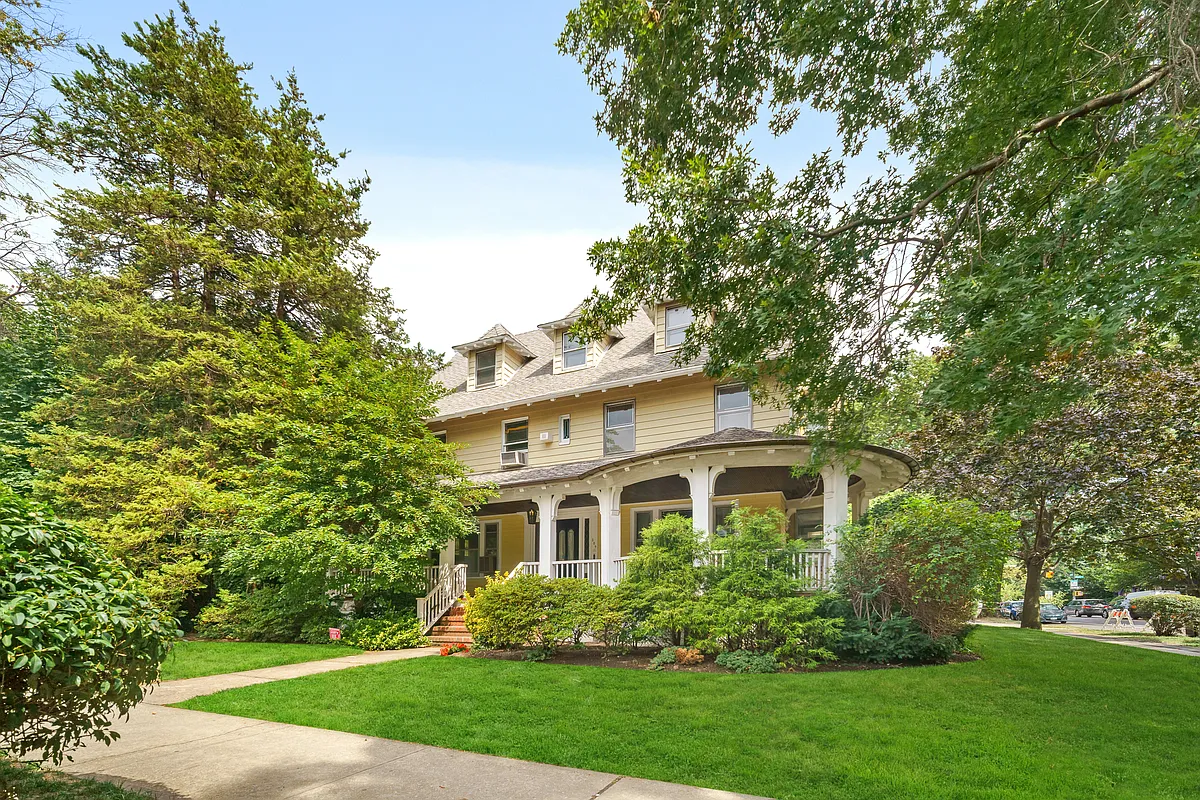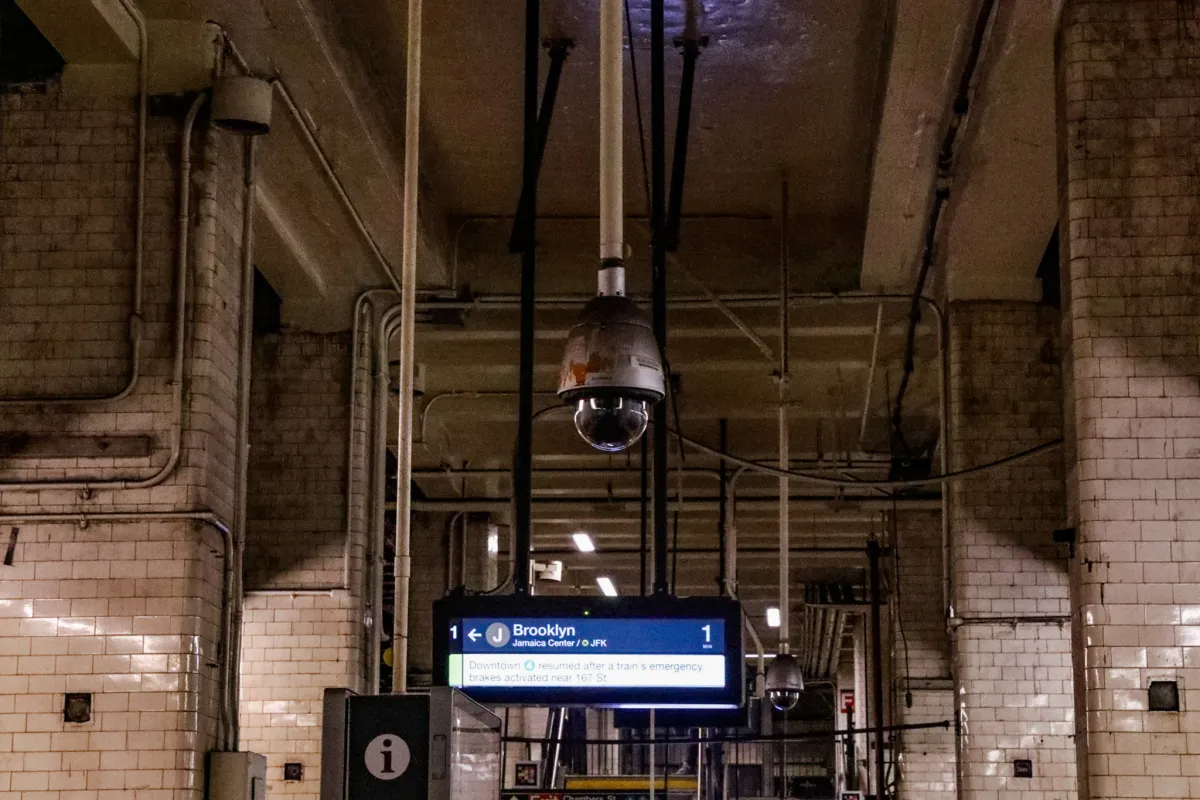'What's Wrong With Gentrification?' Asks New York Mag
This week New York Magazine takes a view on gentrification that is, if not contrarian, at least a little controversial. (The article follows a similar one in the semi-annual magazine n+1). As will come as no surprise to most readers, gentrification these days is treated as something of a dirty word. Why’s that? Mostly because…

 This week New York Magazine takes a view on gentrification that is, if not contrarian, at least a little controversial. (The article follows a similar one in the semi-annual magazine n+1). As will come as no surprise to most readers, gentrification these days is treated as something of a dirty word. Why’s that? Mostly because it conjures up associations of, as n+1 wrote, “the forced displacement of the urban working class by mobile, college-educated professionals.” This may be more myth that fact though: In his recent book There Goes the ‘Hood, Columbia urban planning prof Lance Freeman found that poor residents and those without a college education were actually less likely to move if they resided in gentrifying neighborhoods” and that “the discourse on gentrification has tended to overlook the possibility that some of the neighborhood changes associated with gentrification might be appreciated by the prior residents. In other words, the rehabilitation of an old house or the opening of an upscale bakery isn’t necessarily a zero-sum game in which the long-time residents are lose out. Not only that, claims the New York Magazine article, but gentrification is the only hope that many urban centers have of saving themselves: “The ailing cities that save themselves in the 21st century will do so by following Brooklyn’s blueprint,” the article says in closing. “They’ll gentrify as fast as they can.”
This week New York Magazine takes a view on gentrification that is, if not contrarian, at least a little controversial. (The article follows a similar one in the semi-annual magazine n+1). As will come as no surprise to most readers, gentrification these days is treated as something of a dirty word. Why’s that? Mostly because it conjures up associations of, as n+1 wrote, “the forced displacement of the urban working class by mobile, college-educated professionals.” This may be more myth that fact though: In his recent book There Goes the ‘Hood, Columbia urban planning prof Lance Freeman found that poor residents and those without a college education were actually less likely to move if they resided in gentrifying neighborhoods” and that “the discourse on gentrification has tended to overlook the possibility that some of the neighborhood changes associated with gentrification might be appreciated by the prior residents. In other words, the rehabilitation of an old house or the opening of an upscale bakery isn’t necessarily a zero-sum game in which the long-time residents are lose out. Not only that, claims the New York Magazine article, but gentrification is the only hope that many urban centers have of saving themselves: “The ailing cities that save themselves in the 21st century will do so by following Brooklyn’s blueprint,” the article says in closing. “They’ll gentrify as fast as they can.”
What’s Wrong With Gentrification? [New York Magazine]
Photo by kathyylchan





As Mopar points out, Fort Greene has always been home to black professionals, artists, academics, etc. My block is a really interesting mix of people who are city workers, musicians, different types of professional people. Lots of them are getting pretty old. Buildings became available for sale as the original owners got elderly or died. There is a contingent of oldtimers who get a block party together every year and have fights, petty power struggles, and actually manage to enjoy a few communal activities, like the block party, jazzmobile and spring clean up day. As the matriarchs and patriarchs (mostly matriarchs) get old, who knows if their kids will stay, since many of the families have extended families living in the brownstones. Anyway, this core of people remains and on the fringes are the lunatic “gentry” fixing leaky roofs and fixing stoops and attending to other distinctly unaristocratic chores.
Indeed, quite a few African American professionals have moved into Bed Stuy and helped play a role in the positive changes people are describing. It’s just not as noticeable. Would you say, my goodness, look at all the doctors everywhere!? Though actually, the professional, artistic Black community is a noticeable presence in Fort Greene restaurants, which is one of the things I find appealing about Fort Greene.
What i think is funny is how when we define gentrification most times it’s wealthier white people moving into a “certain” neighborhood. Why couldn’t it be wealthier black people moving into those neighborhoods. Doesn’t the relocation of more educated or more middle class black people count as gentrification. Brooklyn is changing and growing deal with it.I just think that some Manhattanites maybe a little jealous of Brooklyn’s rising star.
If pple want to just breakdown Gentrification to money and class guess what now IT’S Cooler to be Poor.
Excuse me for not reading every post, but at the beginning of the thread some suggested old people died and were replaced by richer, paler young people. There used to be a whole lot of young Puerto Ricans in Park Slope and they ain’t here no more. As for revitalizers why don’t you use the old term pioneer that quickly fell out of favor, the folks living in the “wilderness” didn’t think it appropriate.
“the first wave usually become integral parts of the community. When I think of gentrification I usually think of those who wait until they can build on the work already done. People like Bob Marvin and others I know are the salt of the earth, and as Bob points out, found much to love already there. I forget who said it but as they posted above, gentrification is not the best word. Revitalization is”.
Thank you bxgrl [blush!] and, I believe, I WAS the one who posted about revitalization being a better word than gentrification but, FWIW, IF I’m part of the “first wave” of “gentrification” (or whatever) in PLG, I was a very late part of that wave, and (also FWIW) I’m not sure that either term (gentrification OR revitalization) can be applied to a neighborhood that has ALWAYS been middle class (so WAS THERE a first wave here?).
I DO like to think that I’ve “become integral parts of the community” but I also feel that I’ve built “on the work already done”, at least since the Lefferts Manor Association was founded 90 years ago.
What can I say? PLG/LM ARE different and what applies to other brownstone neighborhoods doesn’t always apply here.
BedStuyDoOrDie, don’t be ridiculous. I, of all people, am hardly blaming the poor for their state. However, within all groups there are always those who do nothing positive for themselves, but bemoan their state in life and look for someone to blame. We in the black community have our share of them. Some of that blame is historically justified, but in this day and age, no longer holds water the way it used to. “The Man” only holds you down if you let him. There are plenty of people who never got higher education, never had a break, who work hard and provide for themselves and their families. Those aren’t the people who have been hanging out on the corner since 1978, still bitching that the white man is holding them back, and are now bitching that the white man is taking their neighborhood away from them. The former are the backbone and lifeblood of our community, scarcely noticed by magazine writers or those who presume to take the pulse of a community, because they are usually at work, not hanging out.
But I agree, enforcing zoning laws (not letting manufacturing areas be turned into residential) is important. Also a variety of measures to counteract or subsidize high housing costs such as building middle-income housing and so on can be helpful.
DoOrDie, you’re twisting Montrose’s words. She’s the last to play blame the victim.
Please define “anti gentrification.”
Posted by: daveinbedstuy at December 15, 2009 5:15 PM
Rent control measures, zoning laws, laws preventing so called ‘Business Improvement Districts’ without the consent of the actual business owners, etc.